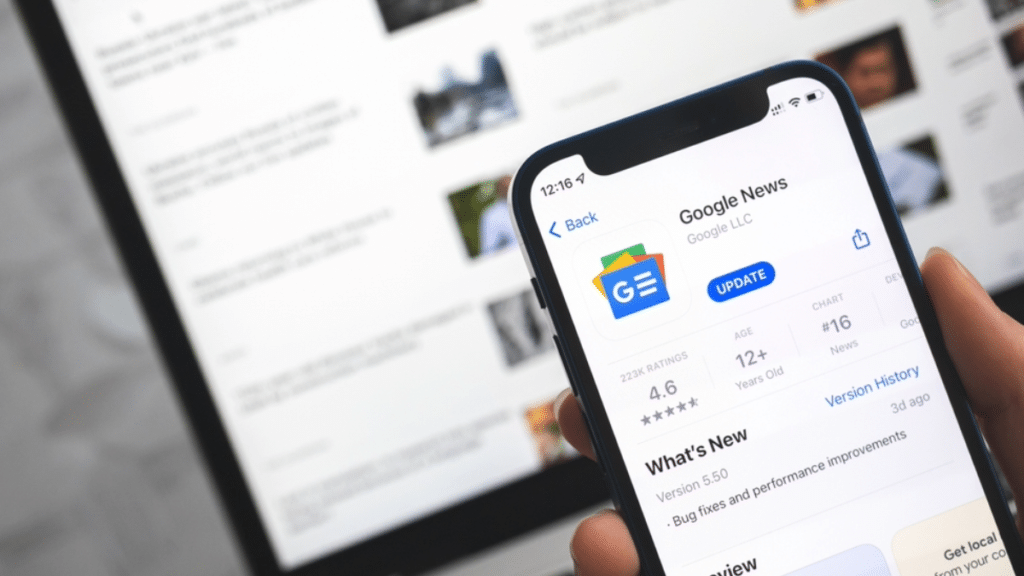Google and Meta Owe US Publishers $14 Billion a Year
Anya Schiffrin, Haaris Mateen / Nov 12, 2023Anya Schiffrin is the director of the Technology, Media, and Communications at Columbia University’s School of International and Public Affairs and a lecturer who teaches on global media, innovation and human rights. Haaris Mateen is Assistant Professor of Finance at the University of Houston C.T. Bauer College of Business.
With our co-authors, Dr. Patrick Holder and Dr. Haris Tabakovic, today we published a working paper that estimates the amount of money that Meta and Google should pay US news publishers for the value of the journalism and information they produce. Based on our analysis, we estimate that fair compensation by the platforms to US publishers would amount to as much as $13.9 billion a year.
Background
The question of how to value content produced by news outlets and disseminated on social media and on search platforms has come to the fore as governments around the world press Google and Meta to pay for the news they disseminate. Australia led the way with its News Media Bargaining Code, passed in 2021, and Canada passed a similar law called C-18 earlier this year. Globally, similar laws are in consideration in at least a dozen other countries. In the US, the Journalism Competition and Preservation Act is stuck in the Senate, but still alive, and California’s Journalism Preservation Act is under active consideration in that state.
In response to what looks like a global movement to get tech firms to pay for the news that adds so much value to their products, Google and Meta have taken a hard line against these laws. Meta has removed news from its services in Canada, while Google is planning to do so.
But in some jurisdictions, the companies are taking a different approach. For instance, Google has been signing payment agreements directly with publishers. These agreements are covered by non-disclosure agreements, so the amounts are often not made public, and the exact methodology of how such payments are calculated is also not made public. In our conversations with publishers, we’ve heard that some of the amounts they receive are quite small. And, these negotiations take place in the context of a clear power asymmetry between some of the largest and most profitable tech companies in the world and newsrooms operating on thin margins.
Assessing a fair exchange of value
We conclude that greater transparency in how to place a value on news is necessary to produce a broader discussion and arrive at a standard that is fair and equally applicable to big and, critically, smaller media outlets. Our new paper presents findings of an economic analysis of the value of news for US media, together with our estimate for what a fair payment from Google and Facebook to news outlets should be for the news content distributed on these two platforms.
To arrive at this figure, we estimate the revenues earned by Google and Facebook platforms from news content, and then split the revenue between the platform and the media outlets. We use a set of historical benchmarks to set this revenue split at 50-50, though our analysis considers a range of potential revenue splits. Our estimates take into account the value of news-related internet searches to Google, as well as the value created for Google, Meta and news publishers from the presence of news content on Google and Facebook platforms. Our calculations lead us to conservatively estimate that Facebook owes $1.9 billion to US publishers annually, while Google owes $10–12 billion.
An important point that emerges from this research is that even large changes in our underlying assumptions – such as the fair revenue split between platforms and news publishers – provide robust support for the conclusion that the actual payments being made by platforms to media outlets are vastly less than what a fair payment would be. Or a payment in a world in which Google and Meta face real competition. (We explain how we arrived at the 50 percent revenue split in detail in the paper.)
Payments from platforms to news publishers can be distributed in many ways, and we have written extensively elsewhere about the options. This paper does not provide recommendations on this question. We simply confine ourselves to estimating the amounts owed to US publishers by Google and Meta.
It is important to note that remuneration from tech platforms alone will not “Save Journalism.” Canada and Australia, for example, did not stop at introducing bargaining codes but also put in place multiple programs and funds to support a healthy news ecosystem. Such initiatives are clearly necessary across the world to support journalism and news literacy. But platforms reap billions from the value created from news, and it is time they share it.
- - -
The authors of the study are Dr. Patrick Holder (Senior, Associate, Competition & Technology Practice, The Brattle Group), Dr. Haris Tabakovic (Brattle Group, Senior Associate with experience in intellectual property and transfer pricing matters), Dr Haaris Mateen (assistant Professor, University of Houston), and Dr. Anya Schiffrin, Senior Lecturer in Practice at Columbia University’s School of International and Public Affairs .
Authors


